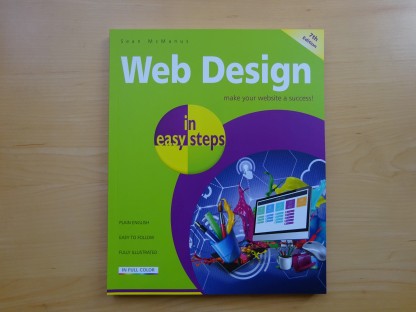
Coding Compendium
A free 100-page ebook collecting my projects and tutorials for Raspberry Pi, micro:bit, Scratch and Python. Simply join my newsletter to download it.
Journalist Sean McManus shows you how to work with press releases
It's a battle of wits.
On one side: our intrepid reporter, dedicated to the truth and trusted by readers to filter out extravagant claims and lies.
On the other side:an army of public relations representatives, paid to fight for space in the magazine and desperate to get good coverage.
I wouldn't say they'd actually lie to you. But the truth is pretty stretchy stuff...
Here are a few pointers on what they'll try to sneak past you...
Manufacturers want readers to think that their widget is special and only they can supply it. Beware of these words:
Companies would love it if you would praise their products in print too without thinking. Ever seen posters for films that say "Sensational! - The Local Newspaper" only to realise afterwards that the local newspaper didn't even see the film before writing the story?
It happens in business press too. A widget is described in the press release as 'unique', Widget Trade Magazine lets it slip through into a brief news story. The manufacturer's annual reports say "We've seen a lot of success this year with Widget Trade Magazine describing our new widget as 'unique'."
Here are some words that PR people pepper their releases with, which you should usually delete. This could become a long list, and I welcome suggestions, but for now beware of:
Leading companies do not have to tell you or your readers that they are leading companies. You know already. Beware of:
Quotes bring life to stories, but very rarely do press releases supply quotes that you can use. Officials quoted in press releases rarely surprise. The typical reaction of the journalist - and the reader if by some lapse of attention the quote gets into print - is 'well, they would say that, wouldn't they?'. Look out for these:
not to exaggerate. But still they do. My favourite real example:
It might seem like nit-picking, but when a story (or worse still a publication) is peppered with meaningless claims that sound good, it undermines the whole thing. If it's not true, don't state it as fact.
Further examples:
Be careful with words that sound like a description, but are really just a marketing claim. They've been planted because they encourage people to buy without imposing any burden on the marketer to supply any proper information. Quantify or discard:
Take care too with rough numbers and estimates. Look out for:
There was a story on Wired News (link no longer live) claiming that a program said to filter pornographic images by looking at them was bogus. The technology was supposed to be able to identify obscene images using sophisticated artificial intelligence to analyse the picture. Wired reported that its tests found that the software rejected most images irrespective of their content. By then, the software had already been praised by several publications and independent websites. The implication is that they hadn't tested it properly before endorsing the software house's claims by republishing them as fact.
You can't test and double-check everything - if you're writing for industrial magazines, you won't have the time, space or expertise to start reviewing machinery in depth. But you can make sure your article reads true by differentiating what you say from what the company says.
It might not turn out to be true that the product can do all they say it can, but it is certainly true that they said it can do it.
Here's an example:
PRESS RELEASE
Jones & Co is launching a new IEEE 802.1 compliant widget destined to capture half the market share in five years. "This product revolutionises the industry," says managing director Jim Jones. "It's a unique concept in widget usability and durability."
The product is fully waterproof to 50Feet and can operate in temperatures as high as 90°C.
The product is released 1 August.
And this is how you might write up some of the claims in that press release, in a rough order of increasing doubt:
If they've built a product, it's fair to say that they've tested it and they wouldn't want to mislead the customers. Their PR claims are probably true most of the time. But it's important readers can tell the difference between a company claiming its product works in a certain way, and you as an independent reporter saying it does.
It's hard to imagine things working any other way. A company would look weak if it said 'we think we'll launch in August' or 'we think we're leading the industry'. Any successful business sees itself as a leader that makes decisions and abides by them (although, unfortunately, 'circumstances beyond their control' sometimes stop things working out).
PR people are just doing their job of showing their client in their best possible light in the same way that you might present yourself at a job interview.
© Sean McManus. All rights reserved.
Visit www.sean.co.uk for free chapters from Sean's coding books (including Mission Python, Scratch Programming in Easy Steps and Coder Academy) and more!

A free 100-page ebook collecting my projects and tutorials for Raspberry Pi, micro:bit, Scratch and Python. Simply join my newsletter to download it.

Web Design in Easy Steps, now in its 7th Edition, shows you how to make effective websites that work on any device.

Power up your Microsoft Excel skills with this powerful pocket-sized book of tips that will save you time and help you learn more from your spreadsheets.

This book, now fully updated for Scratch 3, will take you from the basics of the Scratch language into the depths of its more advanced features. A great way to start programming.

Code a space adventure game in this Python programming book published by No Starch Press.

Discover how to make 3D games, create mazes, build a drum machine, make a game with cartoon animals and more!